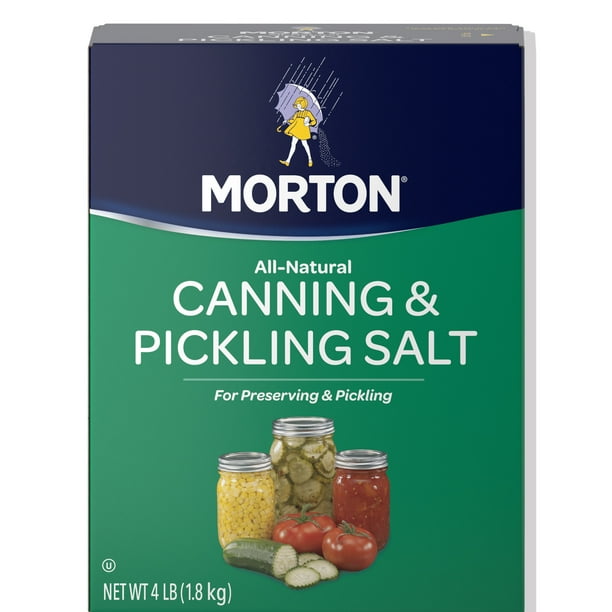
The difference in grain size is more than just cosmetic it means that pickling salt and sea salt function differently even though they offer the same flavor. 1 tbsp 1 tbsp.

For fermented pickles they recommend measuring by weight.
Coarse salt vs pickling salt. Both are large grained coarse salts which contain little to no additives. Kosher salt is made without additives because of jewish dietary laws and is used in kosher butchering. Coarse pickling salt is made without additives because these can cause pickles to discolor and brine to become cloudy.
Coarse pickling salt conversion table. Try a different salt on your favourite recipes. So easy to interchange.
Coarse pickling salt table salt. Tsp tsp. 1 tsp 1 tsp.
1 tbsp 1 tbsp. Cup cup. Cup cup.
Cup cup. 1 cup 1 cup. 2 cups 2 cups.
Coarse pickling salt coarse kosher salt. Tsp tsp. How does pickling salt differ from sea salt.
Grain size is the area where the two salts differ the most. While there is such a thing as coarse pickling salt most pickling salt is fine grained and the overall consistency is more consistently powdery when compared to sea salt. The difference in grain size is more than just cosmetic it means that pickling salt and sea salt function differently even though they offer the same flavor.
Kosher salt vs pickling salt pickling salt is fine grained whereas kosher salt is coarse grained. The crystals of pickling salt are even whereas they are irregular shape in kosher salt. Crystals of kosher salt are flaky making it less dense than pickling salt.
Flakes of teaspoonful of kosher salt will make the brine less salty than a teaspoonful of pickling salt. Pickling salt is different from himalayan salt in that it is usually sea salt and it comes in different textures like coarse powdered or granular. Also it is filled with 60 trace minerals.
Like himalayan salt pickling salt is devoid of anti caking chemicals. Unlike himalayan salt pickling salt usually does not contain radioactive elements. The one exception to this is kosher salt.
Is commonly interchanged with pickling salt because most are also pure salt with no additives or anti caking agents note. A few brands of kosher salt do have other ingredients so always check the label if you want a clear brine. It should only say salt and nothing else and if you can find a fine grain kosher salt all the.
Canning pickling salt natural sea salt fine sea salt kosher salt salt with yps is not recommended for acidic canning pickling applications such as most fruits tomatoes and pickles. Substituting kosher for pickling salt. When pickling a food using pickling salt is ideal since it does not contain anti caking agents which can make the liquid cloudy.
Kosher salt may be used in its place but check the label to make sure there are no additives. Morton has an anti caking agent in their kosher salt so the quality of the. When making substitutions for pickling salt keep in mind that weight per volume can differ.
Salts coarser than pickling salt may also take longer to dissolve. The university of wisconsin cooperative extension advises that 1 1 2 cups of flaked kosher salt equals about 1 cup of canning and pickling salt or about 50 more kosher salt. For fermented pickles they recommend measuring by weight.
7 3 4 ounces 220 grams of flaked salt is equivalent to 1 cup of canning and pickling salt. Like table salt pickling salt may come from the earth or the sea. But unlike table salt it isn t fortified with iodine a nutritional need for humans and doesn t contain anticaking chemicals both of which would turn pickles an unappetizing color.
Virtually 100 percent sodium chloride it s the purest of salts.